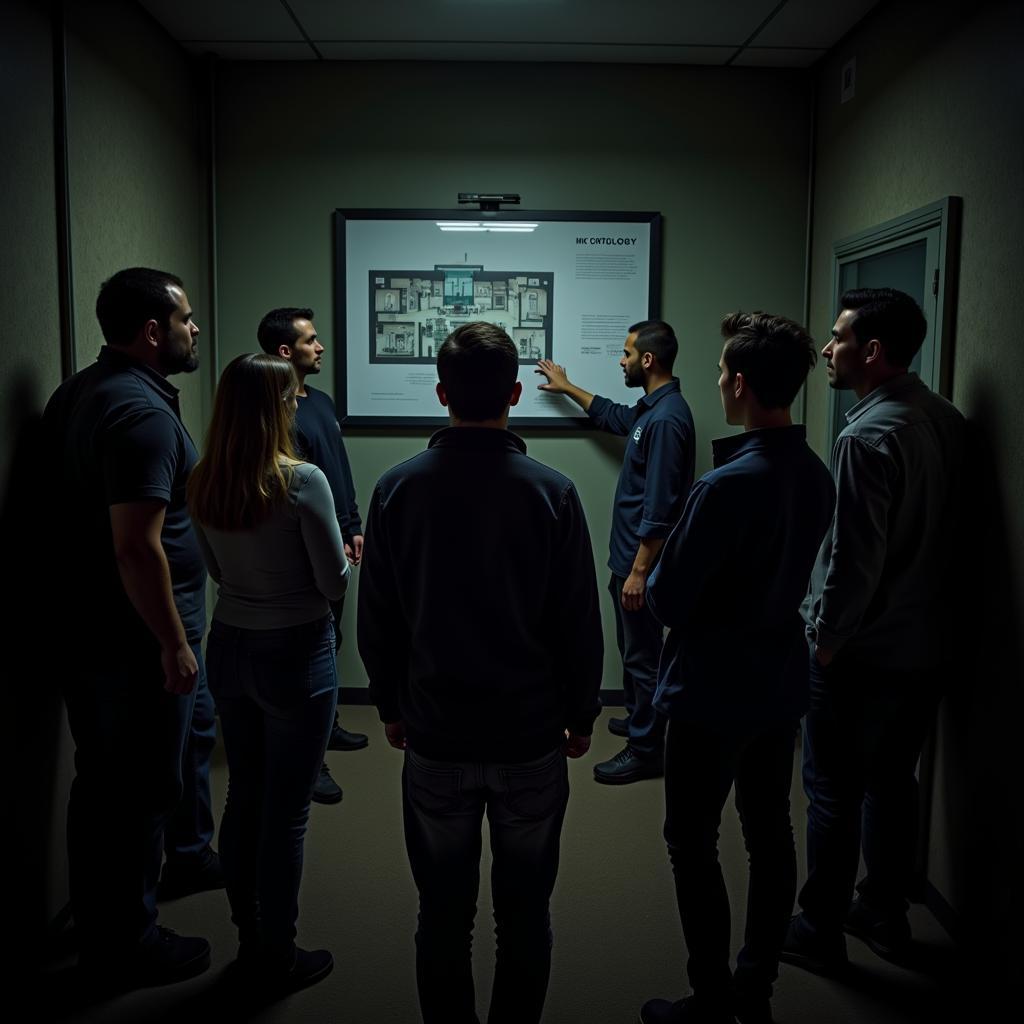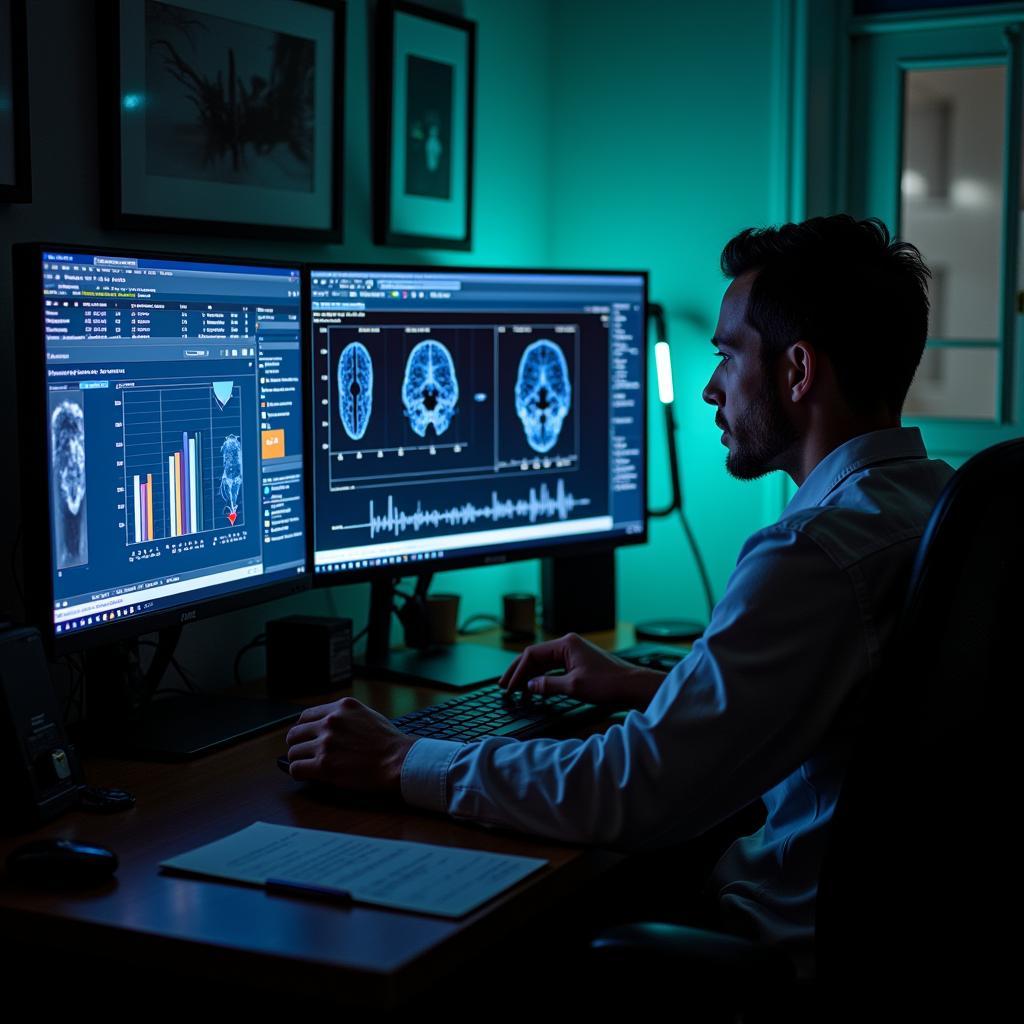The world of paranormal research, while intriguing, can be a complex and often misunderstood field. Those who experience unexplainable events often seek answers from various sources, ranging from spiritual advisors to self-proclaimed paranormal experts. Yet, the missing link in truly understanding these phenomena might lie in the realm of science, specifically with a Clinical Research Psychologist.
 A clinical research psychologist studying reports of paranormal activity
A clinical research psychologist studying reports of paranormal activity
The Intersection of Psychology and the Paranormal
While many associate paranormal phenomena with ghosts and hauntings, the reality is that these experiences often manifest as psychological and emotional responses. This is where the expertise of a clinical research psychologist becomes invaluable. These professionals are trained to:
- Understand human behavior and cognition: Clinical research psychologists can differentiate between genuine paranormal experiences and those stemming from psychological factors such as anxiety, sleep paralysis, or even hallucinations.
- Conduct rigorous research: They can design and execute studies to collect data, analyze patterns, and draw scientifically valid conclusions about paranormal phenomena.
- Employ standardized assessments: Through the use of established psychological tests and interviews, clinical research psychologists can objectively measure and evaluate the experiences of individuals claiming paranormal encounters.
 A paranormal investigation team consults with a clinical research psychologist
A paranormal investigation team consults with a clinical research psychologist
What a Clinical Research Psychologist Brings to Paranormal Investigation
Imagine a haunted house investigation. Instead of relying solely on EMF readers and EVP recordings, a clinical research psychologist could add an entirely new dimension. They could:
- Assess the mental state of witnesses: Are the reported experiences influenced by stress, sleep deprivation, or pre-existing beliefs about the location?
- Identify potential biases: Is the investigation team interpreting ambiguous evidence in a way that confirms their existing beliefs, a phenomenon known as confirmation bias?
- Design experiments: Could specific environmental factors, such as electromagnetic fields or infrasound, be contributing to the reported experiences?
By incorporating these scientific methods, paranormal research can move beyond subjective interpretations and anecdotal evidence.
The Future of Paranormal Research
The involvement of clinical research psychologists in the paranormal field holds immense potential. It offers a way to approach these mysteries with a balance of open-mindedness and scientific rigor.
- Legitimizing the field: Through meticulous research and objective analysis, clinical research psychologists can help separate fact from fiction, lending credibility to genuine paranormal phenomena.
- Developing new understanding: By studying the psychological and physiological effects of paranormal experiences, researchers can gain a deeper understanding of human consciousness and the nature of reality itself.
 A clinical research psychologist analyzes data from a paranormal study
A clinical research psychologist analyzes data from a paranormal study
While the world of the paranormal remains shrouded in mystery, the key to unlocking its secrets may lie in the hands of those trained to understand the complexities of the human mind. By embracing the principles of scientific inquiry and collaborating with clinical research psychologists, we can move closer to unraveling the enigmas that have captivated humanity for centuries.
FAQs about Clinical Research Psychologists in Paranormal Research
1. Do clinical research psychologists believe in the paranormal?
Like any other field, beliefs vary among professionals. Some may be more open to the possibility of paranormal phenomena than others. However, their primary role is to approach the subject matter with objectivity and scientific rigor, regardless of their personal beliefs.
2. How can I find a clinical research psychologist interested in the paranormal?
There are organizations dedicated to the scientific study of paranormal phenomena, such as the Society for Psychical Research and the Parapsychological Association. These organizations often have directories or lists of affiliated researchers.
3. What kind of research methods do clinical research psychologists use in paranormal investigations?
They may employ various methods, including controlled experiments, statistical analysis of data, psychological assessments of witnesses, and physiological measurements during alleged paranormal experiences.
If you are interested in learning more about clinical research psychology, you can find more information on our website: topics for research in clinical psychology.
Remember: Paranormal research can be a fascinating and complex field. Whether you are a seasoned investigator or simply curious about the unknown, consider seeking the expertise of a clinical research psychologist. Their knowledge of human behavior, research methodology, and objective analysis can bring a valuable perspective to any paranormal investigation.
Need Help? If you or someone you know has experienced unexplained phenomena and needs support, please contact us. Our team at Paranormal Research is here to help. You can reach us 24/7 by phone at 0904826292, email at research@gmail.com, or visit our office located at No. 31, Alley 142/7, P. Phú Viên, Bồ Đề, Long Biên, Hà Nội, Việt Nam.